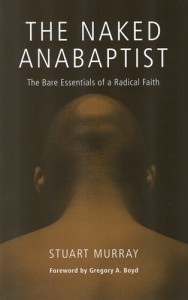“During the Special Response process, as I participated in Bible study, hearing, readings, and discussions, what I noticed was that our hearts were cracking open. Some were cracking in pain, some in anger, and some were simply opening to new light. At least one person said it this way: ‘I dared to ask God to show me if I was wrong.’
“If nothing else, this year has caused members of the Church of the Brethren to pray. When we pray God comes into all the cracks in our hearts and begins working. So when I go back home, what I’m going to tell people is: ‘God is working, but God’s Spirit is not finished with us yet.'”
-Linda Alley, spiritual director and ordained minister
These words from Linda Alley, shared at the close of Annual Conference by her husband and moderator Robert Alley, gave beautiful words to the painful work of this year’s Annual Conference. In the days and weeks after Grand Rapids, we may find that the Spirit of God is indeed at work – yet, for now, there are many who are asking whether God was even present in our decisions.
In recent days I have found that the way author and speaker Peter Rollins works with the last words of Christ gives us a way to discern God’s activity. He simply says that in a single breath Jesus holds together both God’s absence and presence. “My God, my God, why have you forsaken me? (Mark 15:34; Matthew 27:46).” By addressing God, Jesus affirms that God is active and present yet his words describe a sense of divine withdraw. God is both there and not there, the rich paradox of our human life of faith in one single sentence.
The Church of the Brethren now holds within it that same paradox– a confession of God’s presence and absence. Some mourn the actions of the gathering, still others proclaim victory, and all decry the violence done to another through a threat of death.
In between lamenting absence and celebrating presence, is the question of the ages: What is God working within us in these days? That is the question of a sage to seeker, or a spiritual director to companion. That is the question for us as we consider being the church in the wake of Grand Rapids.
What if the absence and presence paradox is asking us a whole other question? What if the real issue in our life together is actually about trust?
Rowan Williams, in his book Tokens of Trust, helpfully describes our societal lack of trust saying that we “assume that things aren’t arranged for our benefit.” This powerless feeling, he goes on to say, “isn’t healthy” and leads to mistrust. “I feel mistrustful when I suspect that someone else’s agenda and purpose has nothing to do either with my agenda or with what that someone else is claiming. They have a hidden advantage; I am being undermined” (4).
All this may sound like a political phenomenon, but the wisdom of Williams’ work points to it as a spiritual issue. When we all entered the waters of our baptism a series of questions was asked, beginning with “Do you believe in God?” Williams is right to frame this statement of belief as a matter of trust. We are not asked if we believe in God like we believe it will rain tomorrow, or if we believe UFO’s exist. Rather, we are proclaiming our trust in God.
Unfortunately, we can betray that trust in God with our very actions. It is possible to say we have faith and then act as though all the power in the world is in our hands– power for ill or for good. So we maneuver, politic, and caucus to ensure our advantage. As Williams highlighted earlier, this is more a sign of our mistrust than it is of our faith. In our actions we plainly say to one another, even as sisters and brothers in Christ, “I do not trust you.” Even more to the point, we say to one another that we do not even trust God to speak to them. What does this say of our faith and ways of being the church?
Our work together and our natural desire for an orderly process provide us a release valve so that we need not encounter our feelings of mistrust. In constructing a process and coming together with plans for voting, caucusing with one another, and wrangling over procedure, we avoid the deep spiritual work of trusting God to work among us. We let off the natural energy by taking matters into our own hands, and in so doing avoid living out the very things we claim to believe. As Peter Rollins has said, our actions are a “lie that allows us to cope with the unbearable truth of our situation” (Church in the Present Tense, 94).
When we continue to practice church as this release valve we will avoid the opportunities to work at the spiritual nature of our mistrust. We will speak of peace and abuse one another. We will talk of community and betray one another through procedures and politics. We will value simplicity and construct barriers that keep us from simply seeing Christ in one another. In other words, we will release our tension by doing Church without letting the transforming Spirit of God work among us.
As we reflect back on our gathering and work in Grand Rapids, how will we tell the story of God’s work within us as the body of Christ? In this year to come, how will we imagine our gathering and leave space to proclaim “God is working, but God’s Spirit is not finished with us yet”?


